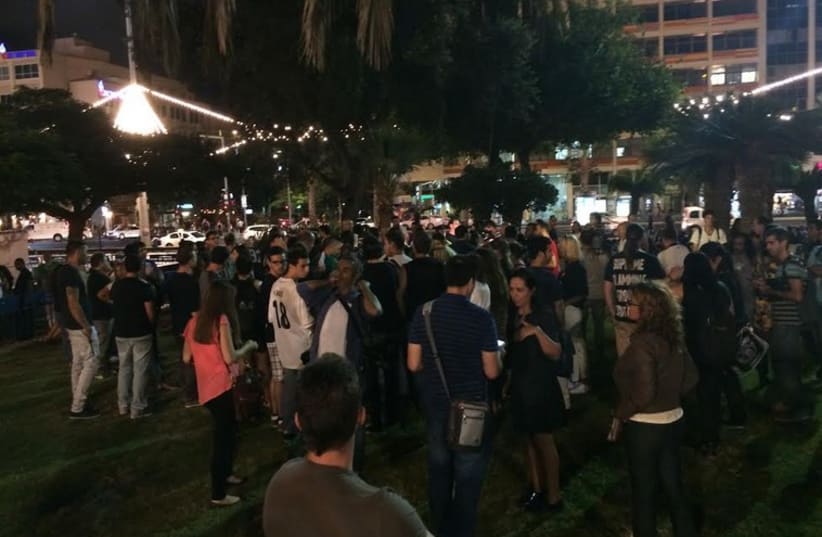Record low emigration numbers supported by underwhelming 'Milky Protest' attendance
Several dozen Israelis, fewer than 4% of the 2,300 who responded "attending" on Facebook, squeezed into a square of grass that was not included in the "Sovev Tel Aviv" festivities.
